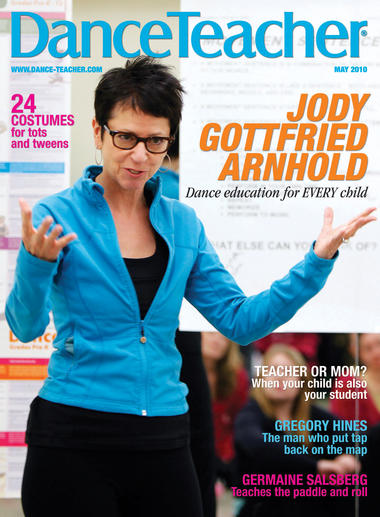Dewey 21C: June 2010 Archives
And as of the writing of this blog, almost 250,000 people have viewed it on YouTube...
It's certainly worth a look, even if it's not specifically about the arts...
Click here to view Hot for Teachers with Megan Fox and Brian Austin Green.
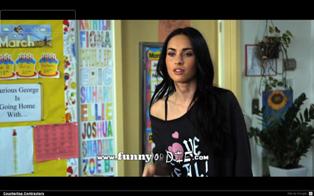

First it was an attack earlier this year on Maxine Greene and now it's an editorial that appeared in the Wall Street Journal: The Political Assault on Art Education, both by Michelle Marder Kamhi.
A brief excerpt:
Ms. Desai is part of a growing movement of art education professors and others who think that the primary aim of art education should be to achieve what they view as "social justice." Their influence is evident in the NAEA, which adopted "Art Education and Social Justice" as this year's convention theme. To drive the message home, the logo employed for the meeting was the raised-fist symbol commonly associated with radical political activism--in this instance, clenching a pair of paint brushes.It reminds me of this quote by Joe McCarthy (February 9, 1950):
This is glaringly true in the State Department. There the bright young men who are born with silver spoons in their mouths are the ones who have been most traitorous. . . .
I have here in my hand a list of 205 . . . a list of names that were made known to the Secretary of State as being members of the Communist Party and who nevertheless are still working and shaping policy in the State Department. . . .
As you know, very recently the Secretary of State proclaimed his loyalty to a man guilty of what has always been considered as the most abominable of all crimes--being a traitor to the people who gave him a position of great trust--high treason. . . .
When I read this stuff coming out of Ms. Kamhi, it makes me wonder whether this has the potential to become a larger issue, perhaps placing arts education into the hands of those who would like to reawaken the culture wars. Wouldn't it be a shame if the issue of arts education became framed as one of anit-American propaganda? Wouldn't it be a shame if the issue of arts education became one of militant teachers inculcating their young naive students to overthrow the government?
With arts teachers being laid off all across the country, is the handful of art professors teaching art and social justice in their universities something to worry about?
It's a red herring, of course.
You don't often see an editorial on arts education in the Wall Street Journal. What a shame it had to be this article, instead of something that pointed out the very real issue, the very real shame of how a curriculum narrowed to exclude arts learning only hurts our children.
UNESCO Second World Conference on Arts Education in Seoul
Blog 4
Theodore Wiprud
June 22, 2010
I wasn't sure why the composer Hi Kyung Kim was keynoter for the second day of the UNESCO 2nd World Conference on Arts Education - a day devoted to "Advocacy: Outreach to socio-cultural values." She talked about artistic dialogue between cultures, but what did she have to say about education, advocacy, outreach? On reflection: plenty. It was almost a parable of effective arts education.
Ms. Kim outlined a series of compositional projects and partnerships that over the last ten years have delved deeper and deeper into cross-cultural musical issues. Having grown up in Korea, moved to California at 25, completed her studies as a composer at UC Berkeley - is she a Korean composer or an American composer? She became interested in traditional Korean music only when confronted by that question. Can traditional Korean music and Western classical music coexist in one work? Can their very different instruments work together? Can they emulate each other? Should they? Or can they find common ground in some new acoustic space?
Each of her projects has taken a different tack, and each seemed to achieve a new kind of synthesis. Each project involved collaboration with traditional musicians and ultimately with a number of Western composers. In fact a California school of composition around traditional Korean instruments seems to be emerging, a phenomenal outcome of one person's quest really to understand her own mixed artistic heritage.
So what about education? First, what a great example of inquiry. It's all about the questions, framed so well that fascinating new art is the only answer - and each answer leads to more questions. Talk about constructivist learning. Talk about research through the artistic process (see my prior posting)!
Second, to borrow Ms. Kim's quote from fellow composer Chou Wen-Chung: "We must educate the young about our past in order to create an art for the future." The new works fusing Korean and Western music are based on intensive study of both. You actually have to know something in order to ask good questions. Learning about traditional Korean music, or about the gayageum say, becomes urgent when it's motivated by artistic inspiration. It's project-based learning of the highest order.
Finally, maybe most important to me as a composer, it's about beauty, beauty as the reward for learning, beauty as the evidence of learning. It's the creative drive in all of us taking the lead in directing our own learning. It's what the eight Very Young Composers of Seoul did in the week prior to the conference - they came together without prior training, to write music for chamber orchestra. Their Teaching Artists trusted them to take the lead, knowing from ample experience that every child has fresh ideas and that with encouragement those ideas will bring new beauty into the world.
Whoever invited Hi Kyung Kim to keynote was very wise. Her presentation concluded with a performance of a piece of hers for solo daegum, a traditional Korean transverse flute with fascinating timbres that she exploited expertly. I expected only a few music people to stay. No, everyone stayed - the beauty and humanity of her music validated all she had described. Although she spoke more about conditions for artistic work and performance than about educational theory, her message was ultimately about how we learn and how we create. The talk itself was great advocacy, great outreach to the assembled delegates, on behalf of inquiry, learning, trust, beauty.
To sum up the UNESCO 2nd World Conference on Arts Education, I don't know whether documents like the Road Map from Lisbon or the new Seoul Agenda, distributed to UNESCO member states, will actually influence policy anywhere. The conference itself certainly afforded some gems amidst the read-aloud papers from academics and government officials. Ultimately, for me, discovering what a live issue arts education is in countries large and small, nations developed and developing, gave me a much wider context for understanding what we do here in New York, and what we can contribute to the worldwide effort. In the wider context, the United States enjoys tremendous riches in arts education. Whatever the week's bad news, we have so much, and so much to work with. Now we even have the benefit of experiencing ideas taking hold elsewhere. As I often say: it's an exciting time.
***************************************************************************************************************
Theodore Wiprud
Director of Education, New York Philharmonic
Theodore Wiprud has directed the Education Department of the New York Philharmonic since October 2004. The Philharmonic's education programs include the historic Young People's Concerts, the new Very Young People's Concerts, one of the largest in-school program of any US orchestra, adult education programs, and many special projects.
Mr. Wiprud has also created innovative programs as director of education and community engagement at the Brooklyn Philharmonic and the American Composers Orchestra; served as associate director of The Commission Project, and assisted the Orchestra of St. Luke's on its education programs. He has worked as a teaching artist and resident composer in a number of New York City schools. From 1990 to 1997, Mr. Wiprud directed national grantmaking programs at Meet The Composer. During the 1980's, he taught and directed the music department at Walnut Hill School, a pre-professional arts boarding school near Boston.
Mr. Wiprud is also known as a composer and an innovative concert producer, until recently programming a variety of chamber series for the Brooklyn Philharmonic. His own music for orchestra, chamber ensembles, and voice is published by Allemar Music.
Mr. Wiprud earned his A.B. in Biochemistry at Harvard, and his M.Mus. in Theory and Composition at Boston University, and studied at Cambridge University as a Visiting Scholar.
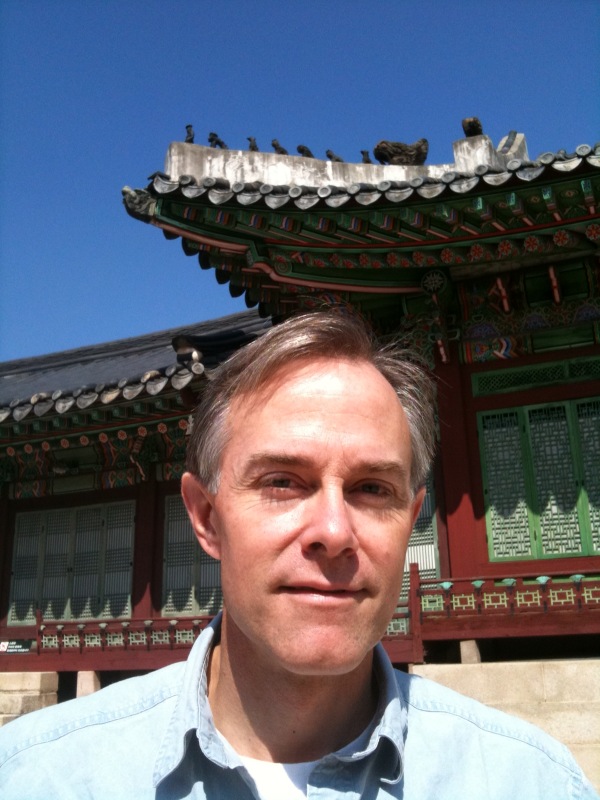
Thanks to a campaign spearheaded by Arts for LA, and perhaps best personified by this full page ad in the Los Angeles Times, the LAUSD school board decided to reduce the level of proposed cuts to elementary arts education teachers by one-third, rather than by half.
Did they ruffles some feathers: of course, this from the LA Times:
Blume reports that the advertisement angered school board member Steve Zimmer, among others, because many civic leaders, including some who signed last week's arts education ad, did not take leading roles before last month's election on behalf of Measure E, a $100 parcel tax that would have raised an estimated $93 million per year for four years to offset the need for budget cuts -- including elementary arts education. The measure received 53% of the vote but failed because it needed a two-thirds super-majority to pass.

This is one pretty great letter and I would urge you to read it.
Here are a few "choice" excerpts:
Not only has the language of the marketplace entered discussions of school governance and management, but we also notice that the language of business accountability is used to talk about education, a human endeavor of caring. The primary mechanism of the No Child Left Behind Act has been annual standardized tests of reading and math for all children in grades 3-8, followed by punishments for the schools that cannot rapidly reach ever increasing test score production targets. We worry that our society has come to view what is good as what can be measured and compared. The relentless focus on testing basic skills has diminished our attention to the humanities, the social studies, the arts, and child and adolescent development. As people of faith we do not view our children as products to be tested
While competitive, market based "reforms" may increase educational opportunity for a few children, or even for some groups of children, do they introduce more equity or more inequity into the system itself?
In so-called "portfolio school districts" which are projected to manage an ongoing churn of new schools coming into existence and weak schools being forced to close, won't closing public schools and moving the students increase student mobility in cities where poverty already means that too many children change schools too often? What is the consequence for a neighborhood or a community when a public school is closed or its entire staff fired?
What happens to children whose parents, for whatever reason, do not participate in choice? We recently heard students whose families simply bring them to register at the neighborhood public school called "over the counter" children. Many of us and many of our children have at some time in our lives been "over the counter" children. We have assumed that universally available and easily accessible public schools were part of the American Dream.

Dewey21C was pretty quiet last week. It happens, what can I say?
With all the end of the fiscal year work to be put to bed, this will be my first post in over a week. But hey, it's a good one!
As part of a comprehensive education "reform" bill signed into law by Connecticut Governor Jody Rell, additional credits are now required for graduation, including one credit of arts. In addition, the one credit humanities elective can be satisfied by an arts program, and even the STEM credit can be satisfied through things like music technology.
A lot of work has gone into this and you've got to give a big hand to everyone in Connecticut who worked to make this happen.
Now, of course, it will be interesting to see how the new requirements are complied with. As we've seen in NYC, a requirement is one thing, but ensuring that all students are provided with the instruction to satisfy the requirement is another. Things like credit recovery, independent study, etc., are used to get around these requirements and while the new required credits are a big step forward, it will be important to take a good look over time as to how this will be implemented.
Here's the press release from the Governor, while it doesn't mention the arts, it's an interesting read: I hope to take a closer look at the Parent Governance Councils and report back.
FOR IMMEDIATE RELEASE CONTACT: Rich Harris, 860-524-7313
May 26, 2010 rich.harris@ct.gov
Governor Rell Signs Sweeping Education Reform Bill
'This is bold, visionary reform - and we are making it happen together'
Governor M. Jodi Rell today signed into law a bill that makes dramatic and fundamental improvements in Connecticut's public education system, legislation that was the product of a concerted effort by the Governor, legislators, the state Board of Education, teachers, business leaders and parents. The new law increases the number of credits required for high school graduation and requires students to pass exams in core subjects such as math, history, biology and English, while empowering parents, school boards and the state to step in when schools are failing.
"This new law raises academic criteria, boosts requirements for graduation and puts a much-needed emphasis on core areas of study such as math, science and technology," Governor Rell said during a signing ceremony at Hockanum School in East Hartford. "It gives new authority to stakeholders - including, for the first time, parents - to take decisive action when schools are letting students down. And it includes new - and rigorous - processes for tracking the performance of students, teachers, schools and districts.
"Today, we put in place standards and requirements that ensure Connecticut's students will be the best-educated and the best-prepared in the world," the Governor said. "Today, we chart a course for our schools, our teachers and most importantly, our students, that leads directly to the top. Technology has made us all neighbors; the global economy has made us all business partners. The world is now too small and the challenges now too great for us to settle for anything less than the very best for our children - all of our children, no matter where they go to school.
"I am also proud to say that this bill is the product of a bipartisan effort," Governor Rell said. "By having all of the interested parties - educators, unions, parents, students, legislators and others - together at the table, we end up with a far stronger result than any individual effort could produce. This is bold, visionary reform - and we are making it happen together."
Senate Bill 438, An Act Concerning Education Reform in Connecticut, increases the minimum credits required for high school graduation from 20 to 25 and gives greater emphasis to math, science and world languages, beginning with the Class of 2018 (that is, students who are fifth-graders this school year). It also requires every student to complete a "capstone project" - an independent demonstration project.
In addition, students will be required to pass end-of-year exams in algebra, geometry, biology, American history and 10th-grade English in order to graduate. The law also requires local boards of education to provide support to students - beginning in seventh grade - to help them meet these new standards.
Importantly, the new law also works to increase parental involvement. The law creates "Parent Governance Councils" to give parents and guardians a clear and essential role in decisions affecting school improvement in the state's neediest schools.
"Students only succeed if their parents are their partners," Governor Rell said. "The education of a child does not begin - or end - with morning and afternoon bells. It is a round-the-clock process."
Under the new law, the state Board of Education will be able to replace local boards of education in low-achieving schools, while priority school districts - districts with the greatest academic need - will be able to convert existing schools to "innovation schools." Innovation schools have special flexibility in curriculum, schedule, budget, staffing and other areas, and must be reviewed each year by the district superintendent.
The new law also enhances Connecticut's chances to secure up to $175 million in federal "Race to the Top" grant funding that rewards states for taking bold steps in education reform. Connecticut will file its application for the next round of Race to the Top grants on June 1.
Other provisions of the new law:
• Allow retired teachers to be rehired for up to one year in a shortage area or priority school district for up to 45 percent of the current maximum salary
• Eliminate enrollment caps for high-performing charter schools
• Require the state Board of Education to review and approve an alternate route for certification for school administrators
• Require all schools to hold parent-teacher conferences at least twice a year
• Require high schools to offer advanced placement courses for students to earn college credit
• Allow students to get credit toward graduation for on-line course work
• Allow out-of-school suspensions for students with a history of disciplinary problems
• Require schools with a dropout rate of 8 percent or higher to establish an on-line credit recovery program to help students earn needed credits
Dance Teacher Magazine had a cover feature on Jody in its May edition. Click here to read:The Visionary.
"I think that every child deserves an arts education, and I'd like to see that dance is first," Arnhold says. "Imagine what the culture would be if we raise generations of dance-literate children. We would encourage young people's artistry and also their creativity and humanity. We would bring life and energy into their schools."
Along comes this very thoughtful and thorough piece about DPS and its new approach to music education via a piece by George Shirley that was published this week in NewMusicBox.org.
Music Education in Detroit's Public Schools: The Struggle to Survive, give you the not pretty picture. Shirley, the first African American ever appointed to a music teaching position in DPS, has been leading a campaign to fight the terrible cuts to music and arts education in the Detroit Public Schools.
I do, however, argue for including music as a part of the solution to effective academic and intellectual growth, rather than debasing it as a frill, a sop held out like a lollipop, an enticement for girls and boys to behave and eat all their spinach before they can go out and play. The presence of music today in most schools--when I was a student in Detroit, music was present in all schools--will under the Bobb plan become history.
It is a source of great concern when I see how seemingly responsible citizens like Robert Bobb relegate music to the status of entertainment. Bobb appears to perceive music solely as a prize awarded for good grades, rather than a proven mind and character-building discipline capable of opening pathways that lead to good grades and further intellectual accomplishment, a rigorous discipline fully adept at imparting life lessons that play a continuing role in all aspects of a student's future endeavors.

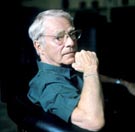 There is very fine obituary by Tony Tommasini that appeared in today's New York Times.
There is very fine obituary by Tony Tommasini that appeared in today's New York Times.I had the great good fortune of getting to know Jack Beeson early on in my tenure at the American Music Center. He was someone whom had been closely associated with the AMC for many, many years and had loved the organization. Right from my earliest days as executive director, Jack reached out to me to offer support, reminding me that the Alice M. Ditson Fund, for whom he was long-term chair, had for many years provided extra help to the AMC during tough financial times.
The care that Jack had for organizations such as the AMC and the old Composers Recordings Inc., connected Jack to a generation of composers who cared deeply for their colleagues and worked hard to advance the field for others. Included with Jack Beeson in this regard are Aaron Copland, Otto Luening, Douglas Moore, and others. These were composers who helped to create organizations by and for their fellow artists, in the days when there were few such organizations. His work in this respect extended to his years guiding the Ditson Fund, the Columbia University Opera Project, and work his many years with the Pulitzer Prize music committee. He was a man who built things.
Primarily known as an opera composer, which considering long periods of drought in the 20th century for American operas premiered by American opera companies, says quite a bit about his work. Of course, his composition extended well beyond opera, to most other forms, including symphonic, chamber, band, etc.
If you take a good look at his composition, particularly his choice of material for opera, you will see an obvious leaning towards American subjects. He was, after all, straight from the Midwest: Muncie, Indiana.
Here's a list of audio links from his music publisher: Boosey and Hawkes.
Jack Beeson was a smart, funny, and extremely straightforward guy. The only composition student of Bela Bartok during his life in America, Jack was a stand--up guy that could be counted on. I consider myself lucky to have known the man, a quintessential American composer.
As I remember Jack, I think also of the end of the first act of Lizzie Borden, an opera I would encourage you all to experience. The end of the first act is one of the most electric, jaw dropping moments I have ever experienced in opera. The work propels itself to the end of that act and leaves you just frozen for a moment. Absolutely brilliant.
The last time I saw Lizzie Borden, I attended a pre-performance dinner at the New York City Opera. At the table was Jack Beeson and Arthur Miller. I remember thinking to myself, wow!, two great, American artists.
Rest in peace, Jack Beeson.
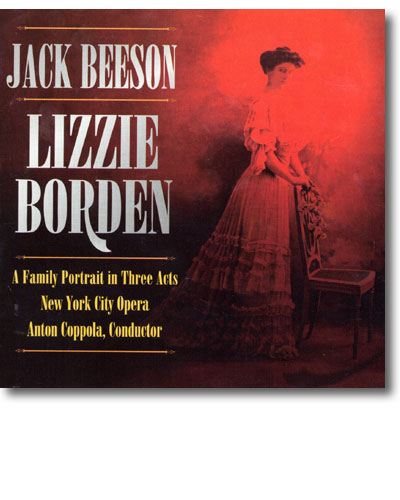
UNESCO Second World Conference on Arts Education in Seoul
Theodore Wiprud
June 6, 2010
I was particularly looking forward to the UNESCO conference roundtable on research in arts education - specifically titled "Supporting the Practical Use of Researches: Suggestions to Enhance Practicality and Reliability of Arts Education Researches." What transpired was intriguing in ways I'd never imagined.
The speakers came from Cuba, Austria, Germany, Zimbabwe, France, and Australia, with a moderator (Dan Baron Cohen) from Wales by way of Brazil. Their understanding of "research" was similarly all over the map - several stressed the idea of involving students in research, for instance, but they didn't exactly mean drawing up rubrics together.
For instance: Ramon Cabrera Salort, from Universidad de las Artes de Cuba, described five groups of high school students in Berlin who designed and carried out their own research projects. What exactly they were researching became less and less clear. One group decided to give "invisible performances" in a park - taking naps and playing with dolls. Another group pretended to be homeless. Another blocked off a busy commuter footbridge at rush hour. Another went to sleep at a McDonalds. They wanted to know how people would react. Disappointingly perhaps, the citizens of Berlin were mainly tolerant and bemused. The final group - all football players - dressed as women and did get a rise - they documented the insults they received. Nevertheless, they discovered they rather liked walking around in drag. (Let's run this one by the NEA!)
A more persuasive approach to students as researchers came from Michael Wimmer, from an organization called EDUCULT in Austria. He cited Charles Ives' The Unanswered Question and Picasso's line, "I never made a painting as a work of art; it's all about research" in asserting that the authentic artist's stance is one of questioning, hypothesizing, discovering. So might the truest aesthetic education be designed as aesthetic research? In one project he described, students created a theatrical event through which audience members would have the experience of being trapped in a school massacre. So how did they collect data? Surveys - nothing particularly creative there. Yet in this presentation, the kids' main focus of creativity seemed to be the research itself. Rather than receiving instruction in theatre, they were being given room to think like true artists by doing research on their audience. Intriguing, but I doubt this is quite what Ives or Picasso had in mind.
The presentation most directly useful to what we think of as research was from Eckart Liebau from the University of Erlangen-Nurnberg in Germany. Speaking specifically of scientific research (as opposed to arts-based research, such as Herr Wimmer had described), Prof. Eckart noted that almost all existing work looks at the side effects of arts education - impacts on other kinds of learning, on socialization, on attitudes toward school, areas that could equally well be addressed through athletics, for instance. What is unique to arts education? What are the cognitive and other differences among the arts disciplines? He called for tools beyond surveys and videos, for more direct indicators of the mind's activities; and for designing pragmatic projects that can inform how we actually teach. If only he had methods to go with his clear-thinking approach to the field.
Pragmatism was everything to Robert Malcolm McLaren, from the Zimbabwe Academy of Arts Education. For McLaren, research means understanding and documenting the many "informal" means of arts education in his country. Just as an informal economy has grown to engulf the formal economy in post-colonial Zimbabwe, so informal arts education - many out-of-school-time opportunities, efforts of small cultural organizations, and apprenticeships, many of these in traditional arts - "democratize the top-down model" of school-based arts education. He suggested that research can legitimize a grass-roots cultural movement.
Mr. McLaren's expansive view of education came like the opening of a window in a stuffy room full of theory and epistemes. How welcome was a quiet comment from our moderator, Dan Baron Cohen, that the next such gathering might do well to include actual artists and educators, and even students, if we want to know what arts education is and what it accomplishes. A noisy ovation erupted - from just a very small corner of the audience, your truly and my New York Philharmonic colleagues.
***************************************************************************************************************
Theodore Wiprud
Director of Education, New York Philharmonic
Theodore Wiprud has directed the Education Department of the New York Philharmonic since October 2004. The Philharmonic's education programs include the historic Young People's Concerts, the new Very Young People's Concerts, one of the largest in-school program of any US orchestra, adult education programs, and many special projects.
Mr. Wiprud has also created innovative programs as director of education and community engagement at the Brooklyn Philharmonic and the American Composers Orchestra; served as associate director of The Commission Project, and assisted the Orchestra of St. Luke's on its education programs. He has worked as a teaching artist and resident composer in a number of New York City schools. From 1990 to 1997, Mr. Wiprud directed national grantmaking programs at Meet The Composer. During the 1980's, he taught and directed the music department at Walnut Hill School, a pre-professional arts boarding school near Boston.
Mr. Wiprud is also known as a composer and an innovative concert producer, until recently programming a variety of chamber series for the Brooklyn Philharmonic. His own music for orchestra, chamber ensembles, and voice is published by Allemar Music.
Mr. Wiprud earned his A.B. in Biochemistry at Harvard, and his M.Mus. in Theory and Composition at Boston University, and studied at Cambridge University as a Visiting Scholar.

I reported on AB 2446 over a month ago. Unfortunately, it has been unanimously approved by the California Assembly and if approved by the Senate, and if signed into law by Governor Schwarzenegger, well, that's that for the time being.
Click here to read the LA Times story on the bill.
Its author, Warren Furutani (D-Gardena) says in a statement on his website that "the intent ... is to increase high school graduation rates, which is an ever-pressing issue."So, what's the big deal here you may ask? So what if high school students can opt out of the arts in exchange for a Career and Technical Education course?
Well, first, one course in Career and Technical Education does not a CTE education make. I understand, that argument could be used for the arts. However, what is being posited here is that the CTE course could help these kids find a job or be better prepared for a job. That flies in the face of best practices in CTE. The best CTE programs also include rigorous academics, including the arts. And, a Career and Technical Education which is as the name would suggest, being very skill oriented and grounded workforce training and preparedness, doesn't happen in a single course of anything.
The real kicker here is the creation of a de facto caste system, whereby only those on a pathway to college are required to take the arts. Those who may go on to a vocation, well, they don't need the arts do they? As the son of a stagehand and a secretary, I find that offensive.
What is more, in a state such as California, which has such a significant creative sector, you would have to wonder how this could be on the verge of being possible. Perhaps the Governor will remember his roots here and veto the thing.
I sure wish there was more that I could do to help our friends at the California Alliance for Arts Education than just saying shame on you to all the members of the California State Assembly.

UNESCO Second World Conference on Arts Education in Seoul
Theodore Wiprud
May 31, 2010
Each day of the UNESCO conference on arts education began with a keynote address or two. The keynote the first day - which set a tone for the whole conference - was by the American team, Robert and Michele Root-Bernstein. He's a professor of physiology with an interest in arts-science interactions; she's a writer and Kennedy Center teaching artist. Together they've authored Sparks of Genius - the 13 Thinking Tools of the World's Most Creative People. Their keynote was essentially a presentation of that book.
The Root-Bernstein's most striking research focuses on Nobel laureates across disciplines, and charts their participation in various art forms. It is indeed striking to discover that Nobel laureates in science are for instance four times more likely to be musicians than scientists from a large, unawarded sample. They demonstrated that polymathy is a strong characteristic of genius. We learned also that some artists have created scientific ideas or even fields, and some scientists likewise in the arts. It's all a fascinating overlap of competencies and interests.
This all leads to several policy recommendations: that we consciously teach creativity; that we place the arts at the center of such teaching; and that we place the arts on par with sciences in the curriculum. Their hypothesis seems to be that if more scientists played music and sculpted, more of them would be Nobel-caliber. This is music to the ears of those who see creativity and its close cousin imagination as the point of entry for the arts into a sustainable role in public education (see for instance Imagination First, recently out from Scott Noppe-Brandon and Eric Liu). It certainly aligns with the South Korean government's unparalleled commitment to arts education - for the purpose of bringing up a generation better prepared to innovate in all fields. And a vision of the arts - thought of primarily as creative opportunities rather than, say, an exercise in sustaining existing canons of work - firmly ensconced in the public vision of a good education, is an exciting vision.
But I must admit to a nagging unease at the thought that the main purpose of arts education should be to promote scientific and technological innovation. Yes, it all goes together, and that's the glory of the human mind. And yet - can there not be space for the arts as arts? Most of us have long ago abandoned any argument over arts for arts versus arts integration. If the arts are well taught, authentically experienced, then all things are possible at once. But if the primary purpose, and the primary measure of success, becomes scientific achievement, for instance, where will we be?
I also wonder about that hypothesis - that more arts activity (not all of it creative, by the way) would make better scientists. Is it not equally plausible that Nobel laureates are made differently, that their polymathy results from their own wide-ranging minds, rather than from their upbringings?
Finally, the title of the Root-Bernsteins' book, referring to the world's most creative people, betrays a false equivalence. They are confusing creative with successful, and indeed looking for successes mainly in non-arts fields (they do spend some time on Nobel laureates in literature). Though I am reacting to their presentation, not a reading of the book itself, it strikes me as a circular argument to call these success stories "the world's most creative people" based on their arts interests, and then justify the arts based on their creativity.
It's hard to know how their presentation struck delegates from countries like Burkina Faso and Costa Rica and Indonesia. At any rate, thy were overshadowed that morning by a stunning performance termed "4-D" - combining video and live performance in a semi-narrative of destruction (to music of Vivaldi - that cruel Western dialectic!) and rebirth (to traditional Korean music - that pure reflection of ancient wisdom!). I for one had never seen anything like it - such seamless interaction of projections on several layers of scrim, with live performers coming in and out of view. Apparently this is now a standard in Korea. For me, the most gripping moments were when live performers came into focus for extended periods - especially the thrilling samulnori ensemble, traditional Korea drumming with plenty of power to destroy, rebuild, and uplift without all the trappings, but brilliantly framed by all that went before and came after. Talk about a combination of science, technology and the arts. But whether this reinforced the Root-Bernsteins' case, or simply shot past it, is hard to say.
**************************************************************************************************************
Theodore Wiprud
Director of Education, New York Philharmonic
Theodore Wiprud has directed the Education Department of the New York Philharmonic since October 2004. The Philharmonic's education programs include the historic Young People's Concerts, the new Very Young People's Concerts, one of the largest in-school program of any US orchestra, adult education programs, and many special projects.
Mr. Wiprud has also created innovative programs as director of education and community engagement at the Brooklyn Philharmonic and the American Composers Orchestra; served as associate director of The Commission Project, and assisted the Orchestra of St. Luke's on its education programs. He has worked as a teaching artist and resident composer in a number of New York City schools. From 1990 to 1997, Mr. Wiprud directed national grantmaking programs at Meet The Composer. During the 1980's, he taught and directed the music department at Walnut Hill School, a pre-professional arts boarding school near Boston.
Mr. Wiprud is also known as a composer and an innovative concert producer, until recently programming a variety of chamber series for the Brooklyn Philharmonic. His own music for orchestra, chamber ensembles, and voice is published by Allemar Music.
Mr. Wiprud earned his A.B. in Biochemistry at Harvard, and his M.Mus. in Theory and Composition at Boston University, and studied at Cambridge University as a Visiting Scholar.

Even with the state budget in flux, this morning the news broke that the City will cancel proposed teacher layoffs, choosing instead to cancel proposed salary increases for the next two years.
Emails started to fly, with people cheering the good news.
But not so fast, The city was in the middle of contract negotiations with the UFT, and while the city can certainly choose to not layoff any teachers, changing the terms of the contract negotiations in public seems like an interesting move to say the least. My dad would have called it "trying to be cute."
And, let's not forget there's another union that is part of all this: The Council of School Supervisors and Administrators. Here's what CSA President Ernest Logan had to say: "We have not consented to his proposal to eliminate raises for the next two years, and we have yet to sit down at the bargaining table."
Here's the Mayor's press release followed by a statement from the UFT:
FOR IMMEDIATE RELEASE June 2, 2010 No. 245 www.nyc.govSTATEMENT OF MAYOR MICHAEL R. BLOOMBERG ON DECISION TO ELIMINATE RAISES TO AVOID TEACHER LAYOFFS
"Earlier this morning in a conversation I had with United Federation of Teachers President Michael Mulgrew, I shared our Administration's solution to the State budget impasse that has left us facing the possibility of substantial teacher layoffs: it is far better for our children and our teachers to save the jobs of over 4,400 teachers, rather than layoff those 4,400 teachers while granting raises to others.
"A month ago, the City released our Executive Budget for Fiscal Year 2011. It was based on the Governor's proposed budget, which included huge reductions in State aid for education. We warned back then that if the State didn't restore those cuts we'd be forced to lay off thousands of teachers. But yet another month has passed and the State Legislature has still not agreed on a final budget. Our schools simply can't wait any longer. Principals are already far past the point in the calendar when they must plan for the upcoming school year, and they need to know what kind of resources they can count on.
"Laying off thousands of teachers is simply not the answer. It would devastate the school system and erase much of the great progress we've made - and all the hard work we've put into turning our schools around. There is simply nothing more important to a child's education than a first-rate teacher. So I have decided to eliminate the two percent raises we had planned for our teachers and principals in each of the coming two years in order to save the jobs of some 4,400 teachers.
"Make no mistake: we've done everything possible to find cost savings, including substantial cuts in administrative spending. And we know that teachers and their families are facing tough times too, and that this will not be easy for them. But when it came to a choice between teacher raises or laying off teachers, I have chosen to protect our children and their futures. While other towns and cities around the country are closing schools and laying off teachers, our Administration is determined to do everything possible to keep our teachers where we need them: in the classroom.
"This was not an ideal decision, and it certainly does not solve all of our budget issues. In our conversation this morning, Michael Mulgrew and I agreed that we would go together to Albany and Washington to press our case to restore more education funding. Our City's schools have come a long way in eight years, and we couldn't have done it without our outstanding corps of teachers."
The statement from UFT President Michael Mulgrew, as reported in Gothamschools:
The Mayor has the power to unilaterally rescind the proposed layoffs, and I'm glad that he has made the right decision to avoid massive disruptions to our schools. He also has the power to take other steps to help deal with our schools' budget problems, such as opting into the state's early retirement incentive, which would potentially save hundreds of millions of dollars; and using more of the estimated $3.27 billion surplus that is being rolled into fiscal 2011 to replace reductions in state education funding.But he does NOT have the power to unilaterally decide on the teachers' contract, and we have reached NO agreement on his proposal to freeze teacher pay. If the Mayor has concrete ideas on the next contract, he and his representatives should bring them to the bargaining table at the Public Employment Relations Board, where our contract is currently in mediation.
While we have reached no agreement on the next contract, the Mayor and I have agreed to go together to Albany and Washington in the near future to lobby for new resources to prevent devastating budget cuts to our schools, our classrooms, and the communities we serve.
Let's welcome back Ted Wiprud to Dewey21C. Ted has graciously agreed to send along some guest blog entries from the UNESCO Conference in Seoul, South Korea.
**************************************************************************************************************
UNESCO Second World Conference on Arts Education in Seoul
Theodore Wiprud
May 29, 2010
The Second World Conference on Arts Education has completed its work in Seoul. From May 25 to 28, delegates from 170 countries came to South Korea to discuss issues in arts education, review the Road Map that was created at the first such conference (Lisbon, 2006), and issue its new Seoul Agenda (no pun intended).
As I arrived in Seoul the day before the conference began, two New York Philharmonic teaching artists - David Wallace and Richard Carrick - were completing their work with eight Korean orphans, who, without benefit of prior musical backgrounds, had over the past seven days composed individual works for chamber orchestra. (You may want to re-read that sentence - it is literally true.) Our partner in the Very Young Composers of Seoul project was KACES - Korea Arts and Culture Education Service, a government agency employing over 4,000 teaching artists. The Korean government has an unparalleled commitment to arts education, as those who read my blog during our Asian tour in October 2009 already know.
This was a major event for the Korean government. The Prime Minister, the First Lady, and many ministers and vice ministers made appearances. It took place at an enormous conference center, COEX, and the government laid on the red carpet, especially for the opening ceremony and the opening dinner.
KACES and the New York Philharmonic jointly presented two concerts of the Very Young Composers or Seoul's new pieces, performed by a chamber orchestra called Joy of Strings, to acclaim from the UNESCO delegates. But my purpose in this blog is not so much to extol the wonders of children's creativity and the power of the approach Jon Deak has pioneered, but to report and reflect on the conference itself, since hardly anyone from the American arts education world was there.
This was primarily a gathering of government officials and university academics, with earphones available for simultaneous translation into a variety of tongues. It was a far cry from the sort of gatherings with artists and educators and cultural administrators I am used to - more a reading of papers, even in the so-called roundtables, than an opportunity for hands-on engagement. Nevertheless, a great number of interesting themes emerged.
Most generally, issues appointed for the conference matched closely with themes we discuss back home: creativity, capacity building, advocacy, research. But what those terms mean to different countries and cultures varies widely. For instance, in a roundtable on advocacy, it quickly became clear that the idea of lobbying was the last thing on people's minds. From Mexico, we heard that arts education is a point of entry to cultural citizenship - what we might call access. From Trinidad, wracked by violence, we heard that arts education is a point of entry into dialogue and reconciliation. From Palestine, we heard that arts education is a point of entry for the creative individual to replace the habitual victim- a step toward nationhood. All of these presentations made our budget struggles seem suddenly parochial and petty. Yet they remind us of the enormous power of arts education, certainly when it is understood as empowering individual thinking and creativity rather than refining consumer habits. Which makes our budget struggles suddenly more important than ever.
**************************************************************************************************************
Theodore Wiprud
Director of Education, New York Philharmonic
Theodore Wiprud has directed the Education Department of the New York Philharmonic since October 2004. The Philharmonic's education programs include the historic Young People's Concerts, the new Very Young People's Concerts, one of the largest in-school program of any US orchestra, adult education programs, and many special projects.
Mr. Wiprud has also created innovative programs as director of education and community engagement at the Brooklyn Philharmonic and the American Composers Orchestra; served as associate director of The Commission Project, and assisted the Orchestra of St. Luke's on its education programs. He has worked as a teaching artist and resident composer in a number of New York City schools. From 1990 to 1997, Mr. Wiprud directed national grantmaking programs at Meet The Composer. During the 1980's, he taught and directed the music department at Walnut Hill School, a pre-professional arts boarding school near Boston.
Mr. Wiprud is also known as a composer and an innovative concert producer, until recently programming a variety of chamber series for the Brooklyn Philharmonic. His own music for orchestra, chamber ensembles, and voice is published by Allemar Music.
Mr. Wiprud earned his A.B. in Biochemistry at Harvard, and his M.Mus. in Theory and Composition at Boston University, and studied at Cambridge University as a Visiting Scholar.

